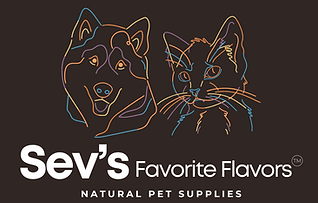Why Kibble Contributes to Kidney Disease and Pancreatitis — And Why Fresh Food is the Solution
- Paulien
- Jun 11
- 3 min read
If you've ever had a pet suffer from kidney disease or pancreatitis, you know how heartbreaking — and frustrating — it can be. You want to help them feel better, but many pet parents don’t realize that what goes into the food bowl every day plays a major role in these diseases. In fact, the most common diet fed to dogs and cats — dry kibble — can quietly lay the groundwork for these health issues.
Let’s talk about why kibble can harm your pet’s kidneys and pancreas, and how fresh, species-appropriate food can make a world of difference.
🔥 Kibble and Pancreatitis: A Recipe for Inflammation
Pancreatitis is an inflammation of the pancreas, and it’s becoming alarmingly common in both dogs and cats. While it can be caused by a number of factors, one of the most overlooked culprits is the highly processed, carbohydrate-heavy kibble that so many pets eat every day.
🐶 For Dogs:
One of the key reasons kibble stresses the pancreas in dogs is because dogs lack salivary amylase — the enzyme that starts breaking down carbohydrates in the mouth. Unlike humans, who begin digesting starches as soon as they chew, dogs rely entirely on their pancreas to produce amylase and handle carb digestion.
Now consider that most kibble is made up of 40–60% carbohydrates — often from cheap fillers like corn, wheat, rice, peas, and potatoes. That means with every meal, your dog’s pancreas is doing overtime just to keep up. This excess workload leads to chronic inflammation and can eventually trigger pancreatitis, especially when combined with the oxidized fats and artificial additives found in many commercial diets.
🐱 For Cats:
Cats are obligate carnivores, meaning their bodies are biologically designed to thrive on animal-based proteins and fats — not carbs. They have even less ability to digest carbohydrates than dogs do. Their natural diet (think mice, birds, insects) contains virtually no starch.
But most cat kibble? Still packed with carbohydrates — sometimes even higher than dog food. Just like in dogs, cats do not produce salivary amylase, and their pancreas has to work hard to produce the necessary enzymes to deal with these foreign ingredients. Over time, this burden can lead to pancreatic inflammation, insulin resistance, obesity, and even diabetes.
Even worse, cats are notoriously poor water drinkers. Combine this with a dry, carb-heavy diet, and you’ve got a recipe for stress on not just the pancreas, but also the kidneys and urinary tract.
💧 Kibble and Kidney Disease: Dehydration in a Bag
One of the biggest problems with kibble is that it’s completely dry — only about 10% moisture. Dogs and cats naturally have a low thirst drive. They’re designed to get most of their hydration from their food, just like their wild ancestors who ate fresh prey (which is about 70-75% water).
When pets eat kibble, they live in a state of chronic, low-level dehydration. This is especially damaging to the kidneys, which rely on adequate hydration to filter waste from the bloodstream and flush it out through urine. Over time, this strain on the kidneys can contribute to chronic kidney disease (CKD) — one of the most common causes of death in cats, and increasingly common in dogs too.
🌿 Fresh Food: What Your Pet Was Meant to Eat
Fresh, whole food diets — whether raw or gently cooked — are rich in natural moisture, high-quality proteins, and anti-inflammatory nutrients. They’re free from artificial preservatives, fillers, and the high heat damage that kibble undergoes.
Here’s what fresh food provides that kibble doesn’t:
Hydration: Fresh food helps keep your pet’s kidneys flushed and healthy.
Better fats: Whole-food fats (like those from sardines, pasture-raised meats, or even raw egg yolks) support rather than harm the pancreas.
Digestive support: Raw bones, fibrous veggies, and organ meats promote a healthy gut — your pet’s first line of defense against disease.
Less inflammatory load: Fresh food is lower in AGEs and doesn’t rely on oxidized, rancid fats or synthetic ingredients.
🐾 Real Life Results
At Sev's Favorite Flavors, we’ve seen firsthand how switching to a fresh food diet can reverse early-stage kidney problems, calm inflamed pancreases, and bring pets back to vibrant health. Softer coats, cleaner teeth, more energy, smaller poops — and most importantly, fewer vet visits.
If your dog or cat is dealing with pancreatitis, kidney disease, or just not thriving on kibble, consider making the switch. Even a partial transition can offer big benefits.
Need help getting started? We're always happy to talk about safe, balanced, species-appropriate meals for your pet’s needs — whether that’s raw, gently cooked, or even tailored treats and supplements.
Because your pet deserves more than just surviving — they deserve to thrive.
.png)